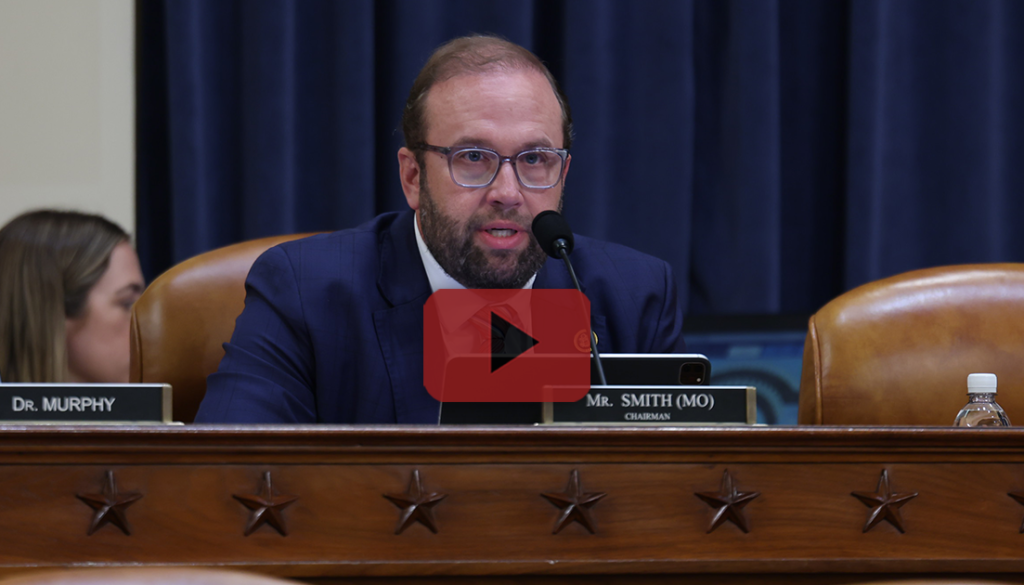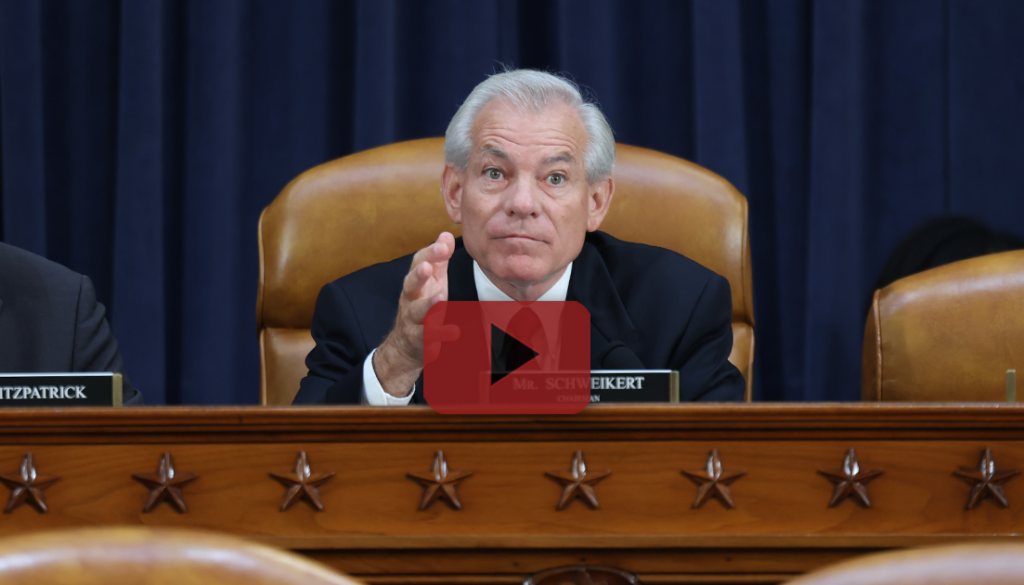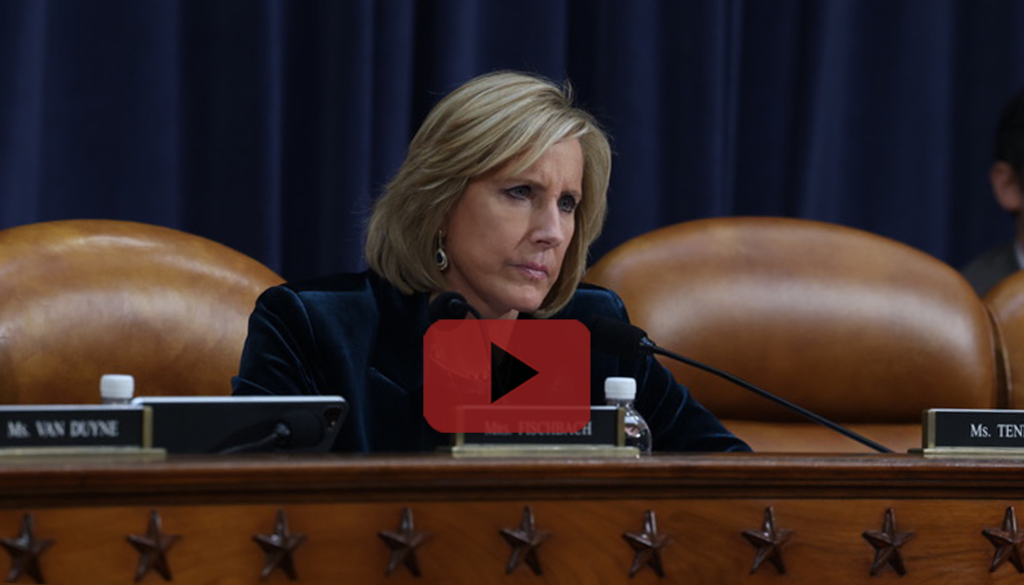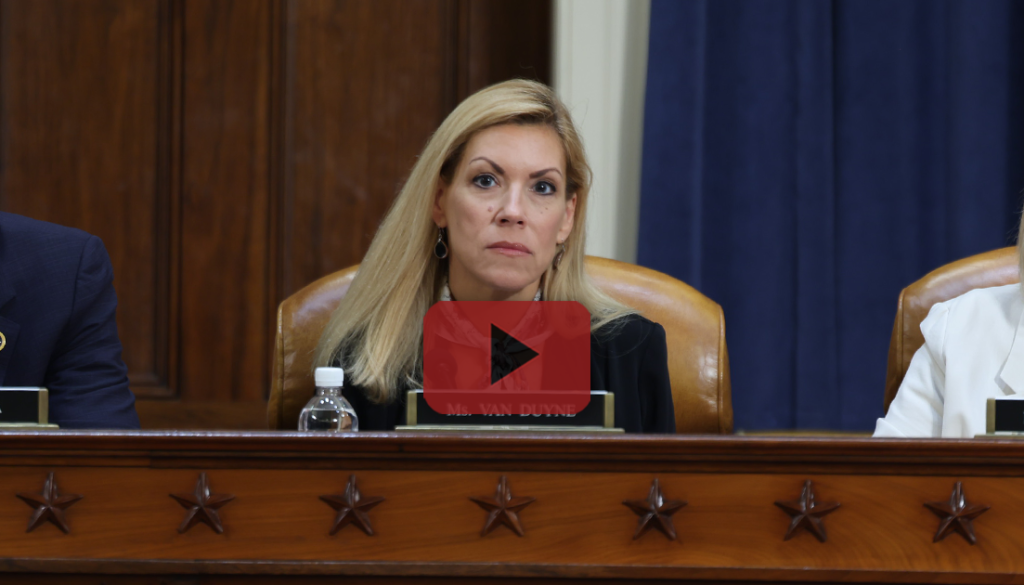WASHINGTON, D.C. – Antisemitic protests across the country are being fueled in part by tax-exempt organizations that in some cases have ties to terrorist organizations like Hamas, witnesses shared during shocking testimony at a Ways and Means Oversight Subcommittee hearing tracing the flow of tax-exempt dollars to support for antisemitism. Students for Justice in Palestine (SJP), an organization behind much of the antisemitic activity on college campuses this spring, receives funding and material support from a tax-exempt organization called AJP Educational Foundation (AJP) and its fiscal sponsor called American Muslims for Palestine (AMP). AMP is currently being sued in state court under suspicion that the charity may have been funneling money to Hamas.
Witnesses, including experts on terrorism financing and extremism, pointed to a lack of transparency about the flow of money through tax-exempt organizations to non-tax-exempt organizations like SJP as a roadblock to efforts at halting the funding for antisemitism. Another factor is abuse of the tax code, particularly through the use of “fiscal sponsorships,” that allow one group to essentially piggy-back off the tax-exempt status of the sponsoring organization with little to no transparency surrounding the activities of the fiscally sponsored organization.
Additionally, among the issues raised, was concern over China’s ties with the U.S. tax-exempt sector — with Ways and Means Committee Chairman Jason Smith (MO-08) highlighting in his opening comments a 501(c)(3) organization by the name of the The People’s Forum which encouraged unrest and student protests at Columbia University.
Violent Antisemitic Protests on College Campuses Are Not Some “Organic Uprising”
The proliferation of violent, antisemitic protests on college campuses this year has not occurred in a vacuum. As Ways and Means Committee Chairman Jason Smith (MO-08) noted in opening remarks during the hearing, a growing mountain of evidence gathered by the Committee as part of its ongoing investigation into tax-exempt entities shows the well-funded influence of outside organizations – which enjoy tax-exempt status under the U.S. tax code – fomenting the harassment of Jewish students.
Chairman Smith: “The committee began its investigation into entities organized under Section 501 of our tax code because of concerns about organizations using their tax-exempt status for harmful purposes. Over the course of our investigation, it has become clear that the explosion of antisemitic activity on college campuses has been supported and encouraged by bad actors who in many cases have used tax-exempt organizations for those purposes. The violence and hatred directed at Jewish Americans and in support of terrorist organizations like Hamas are not some organic uprising. There are well-orchestrated efforts by anti-American and anti-Jewish organizations within the United States that provide financial and logistical support to those who harass and threaten Jewish students.”
“Sunlight is the Best Disinfectant”: Better Transparency Needed for Tax-Exempt Organizations
Groups registered as 501(c)(3) nonprofits have a history of abusing the tax code to hide the activities they support and fund or the sources of their donations. One glaring tactic that was mentioned repeatedly during the hearing was “fiscal sponsorship,” a tactic where one tax-exempt organization “fiscally sponsors” a non-tax-exempt organization for certain projects, essentially allowing the other group to inherit their tax-exempt status. In response to Oversight Subcommittee Chairman David Schweikert (AZ-01), a witness shared how the Westchester Peace Action Committee Foundation (WESPAC) is using this tactic to support Students for Justice in Palestine and other groups in his plea for Congress to shine more “sunlight” on these tax-exempt groups.
Rep. Schweikert: “Mr. Segal, give me sort of the unified theory of what is both at the university level, but also what’s attacking society, what’s also attacking our Jewish communities? How would we at least use information, sunlight, to protect people’s intellects?”
Mr. Oren Segal, Anti-Defamation League: “Sunlight is the best disinfectant, and this is why so many people dealing with these issues are calling for transparency. The easy part, in some way, is to see what these organizations that are benefiting from this fiscal sponsorship from 501(c)(3)s, are doing. They’re promoting extremism; they’re promoting terrorism; they’re engaging in antisemitism, making Jewish communities and other communities feel unsafe. What is more difficult to see is exactly where the money is coming from. In the case of Within our Lifetime, or [Students for Justice in Palestine] SJP, which gained funds from Westchester Peace Action Committee Foundation (WESPAC), how much money exactly is getting there is unclear. What is happening with that money is unclear. Essentially WESPAC, which operates as a 501(c)(3), is lending that same status to the projects that it is funding, without them having to declare what they’re doing.”
“I Wish I Could Provide More Specifics, But That’s Part of The Problem.”
WESPAC also helps illustrate the lack of transparency in the tax-exempt sector that antisemitic forces have twisted to their benefit. In WESPAC’s case, the New York-based 501(c)(3) organization funnels money to many of the groups behind college protests that descended into violence and chaos, but their funding sources, and how their donations to other groups are used, are opaque. Rep. Claudia Tenney (NY-24) tried to bring WESPAC’s activity out of the shadows and into public view, but as a witness acknowledged, the lack of substantive financial information from the organization makes it nearly impossible to follow the money.
Rep. Tenney: “In my home state of New York, there’s a group called Westchester Peace Action Committee Foundation, otherwise known as WESPAC, which has been rearing its ugly head a lot…and has acted as a fiscal sponsor for many anti-semitic, anti-Zionist organizations, such as Students for Justice in Palestine and Within our Lifetime. Mr. Segal, you speak to the role that WESPAC plays in the ecosystem of tax-exempt, anti-semitic organizations. Can you get into more specifics about what projects WESPAC is funding – on the ground, grassroots, in colleges, throughout Westchester County, throughout New York and other areas?”
Mr. Oren Segal, Anti-Defamation League: “I wish I could provide more specifics, but that’s part of the problem. There’s such a lack of transparency on where the money is going and what it is supporting. That’s one of the reasons why this type of ‘fiscal sponsorship’ needs to be investigated. There needs to be more transparency in order for us to know exactly where this is going. We do know, Within our Lifetime, SJP, and a range of other anti-Zionist organizations are getting money. Exactly how that money is earmarked, what percentage does WESPAC receive for enabling the transfer of funds to those organizations – a lot needs to be made more clear.”
Some Employees Are Just as Guilty as Their Organizations for Terrorist Financing
The Ways and Means Committee investigation has uncovered that many of these tax-exempt groups have actually been founded, created, and financed by the same people, often starting new tax-exempt organizations after previous ones have been shut down for illicit conduct. Rep. Beth Van Duyne (TX-24) pointed out that some of these organizations have been shut down by the Treasury Department for providing material support and funding to terrorists, but similar authority does not exist to bar the individuals behind the groups from simply starting over and essentially operating the same organization, just under a different name.
Rep. Van Duyne: “Is there anything that Congress could do to ensure individuals that have worked for organizations previously shut down by the Department of Treasury for financing terrorism, are ineligible to be associated with a tax-exempt entity moving forward?”
Ms. Lara Burns, terrorism financing expert: “I believe that would be effective. If individuals had been affiliated with, and specifically raised funds for organizations that had been designated as terrorist organizations, those individuals should be blocked from being able to participate in additional charitable organizations that receive tax-exempt status. There’s one example of an entity that I mentioned earlier: the United Hands Relief that’s based in Texas. One of their directors is a man named Hatem Fariz, who was convicted in Florida for providing support to the Palestinian Islamic jihad. He was also convicted of committing fraud in Illinois. That’s another aspect that I would like to address: individuals that are entrusted with operating tax-exempt organizations. Their records should be fairly clear, free of crimes of moral turpitude, like fraud and waste.”




